Fifty years ago, one of the most controversial books of the late 20th century was published. Camp of the Saints was written by Jean Raspail, a French travel writer, who explained decades later that the idea for the novel had come to him one day in 1972, as he looked out at the Mediterranean from the Côte d’Azur. ‘I don’t know what went through my mind,’ he said. ‘The immigration problem didn’t exist yet. The question suddenly arose: ‘What if they came?’
The book is the story of a million migrants from India, who landed on the south coast of France in an armada of boats. They were welcomed by the left, who saw them as fellow citizens of the world, cheering them on their way to Paris with a cry of ‘We’re all from the Ganges now!’ The French government asked other western nations to do their bit, which they did, and the munificence of Europe emboldened migrants from other countries to make the journey: ‘Endless cascades of human flesh,’ remarked the novel’s narrator. ‘Every one of the boats, teeming, gushing with bodies, like a tub brimming over. Yes, the Third World had started to overflow its banks.’
Much of the dialogue and the characterisation was crude and offensive, but the book’s strength was its boldness in confronting an issue that was already troubling a few western thinkers
Camp of the Saints was not well received by the bien pensants of Paris when it was published in 1973. ‘I was called a racist, the ultimate anathema of our hypersensitive and totally blind West,’ reflected Raspail a decade later. ‘A West which has not yet understood that whites, in a world become too small for its inhabitants, are now a minority and that the proliferation of other races doom our race.’
The Camp of the Saints was published in the United States in 1975, and it split opinion. The New York Times described the plot as ‘preposterous’, and ridiculed Raspail’s ‘fancy that sometime in the near future the Third World, protesting the unequal division of the world’s goods and western indifference to its misery, strikes back’.
Time magazine’s review was headlined ‘Poor White Trash’ and it began: ‘For those who have always wondered what it would feel like to be worked over by the Gestapo, French Essayist and Novelist Jean Raspail has concocted a reasonable facsimile.’
Much of the dialogue and the characterisation was crude and offensive, but the book’s strength was its boldness in confronting an issue that was already troubling a few western thinkers. The Hartford Courant appreciated Raspail’s portrayal of the bien pensants, ‘who hail the migration as the hope of mankind, until they realise, too late, that the landing of the millions means the end of European civilisation’.
Writing in the Boston Globe, James Kilpatrick praised the ‘courageous’ book and said it was no surprise that it had been ‘viciously ridiculed by Time magazine and the New York Times’. He pointed out that Raspail depicted the migrants as admirable in many ways: determined, resourceful and aspirational. They sought a better life. Raspail’s contempt was for a West ‘incapable of identifying or defending its own values’.
Kilpatrick was one of several reviewers who cited projected population figures for the final two decades of the 20th Century. In 1975 the world’s population was approximately four billion, a number that was expected to double by 2000. It was with this figure in mind that Raspail wrote The Camp of the Saints, the title of the novel taken from the Book of Revelation.
Population growth actually peaked in the 1960s and for the rest of the century it slowed. It has increased sharply since the turn of the Millennium; in 2011 the seven billion landmark was reached and in November 2022 it hit eight billion. In conveying this statistic, the New York Times stated that approximately 70 per cent of this growth ‘happened in low- and lower-middle-income countries, most of which are in sub-Saharan Africa’.
2011 was the year of the West’s ill-conceived intervention in Libya, removing Colonel Gaddafi. With the tyrant gone, the region descended into chaos and mass immigration from Africa into Europe exploded. According to figures from Frontex, the EU border agency, 4,450 people crossed the Central Mediterranean in 2010; the following year 64,261 made the journey, and between 2014 and 2017 the total number landing in Europe on this route was 625,455.
At the same time, hundreds of thousands of migrants and refugees were entering Europe through the Western Balkans, after German chancellor Angela Merkel opened the continent’s borders in August 2015. That year 764,033 people streamed into Europe, a 16-fold increase on 2014.
On September 2, 2015, two days after Merkel issued her invitation with a cry of ‘We can do this!’, Marine Le Pen, leader of France’s National Front, tweeted: ‘Today, it’s a migrant submersion. I invite the French to read, or re-read, The Camp of the Saints’.
By a quirk of fate, 2015 was the year that Jean Raspail had chosen for an article he wrote for Le Figaro 30 years earlier. It was the cover story in the newspaper’s magazine in October 1985, and the headline – above a picture of Marianne, symbol of France, dressed in an Arab woman’s veil – asked ‘Will France still be French in 2015?’
The article, for which Raspail was assisted by Gerard Dumont, head of the Institute of Political Demography, argued that France’s culture, values and identity would be threatened in 2015 because of large-scale immigration from North Africa.
The article was condemned by the then Socialist government. In a speech to the National Assembly, Prime Minister Laurent Fabius savaged Raspail and Dumont, saying: ‘Immigrants have contributed in large part to the richness of France. Those who have been manipulating immigration statistics are going counter to our country’s genuine national interest.’
Jack Lang, the Culture Minister, called the article ‘completely grotesque and ridiculous’ and accused Le Figaro of peddling ‘racist propaganda’. The authors refuted the government’s assertions, and Raspail accused the government of a refusal ‘to face true facts and trends.’
Not all France’s political class were aghast at the article. Jean-Marie Le Pen, father of Marine, and then the leader of the National Front, used it as evidence of what he had been saying since he’d founded the party in 1972: that large-scale immigration threatened the Republic.
By 2015 Laurent Fabius was harbouring doubts about mass immigration. By this time he was Minister of Foreign Affairs in François Hollande’s Socialist government. In a speech to the EU in April 2015, Fabius spoke of France’s ‘total determination’ to curb the increasing number of boats heading across the Mediterranean from Africa. ‘We must distinguish between those who are entitled to asylum – and obviously this asylum must be organised in the different countries – and those who come for economic reasons and who will not be able to stay on European soil,’ he said.
But this ‘determination’ stretched merely to rhetoric, and neither France nor Europe made any concerted effort to stem the migrant flow, even after the terrible events of November 13 2015, when 130 Parisians were massacred by an Islamist terror cell, two of whom had travelled across Europe to France posing as migrants.
François Hollande’s administration fell in 2017, largely because of his ineffectiveness in confronting the twin challenges of mass immigration and Islamic extremism. His successor in the Élysée was Emmanuel Macron, who beat Marine Le Pen in the presidential run-off.
He took office with a familiar promise, one he outlined in a keynote speech at the Sorbonne shortly after his election. The EU had a migrant problem, Macron conceded, and his solution was the creation of ‘a common area of borders, asylum and migrations, to effectively control our borders, welcome refugees with dignity, integrate them fully and swiftly send those who are not eligible for asylum back to their home countries.’
It is not just French presidents who have been incapable of fulfilling their promises. In 2010 David Cameron made a ‘no ifs, no buts’ pledge to the British people to reduce annual net migration to below 100,000. In the next four years net migration increased to 300,000. The country took out their anger on Cameron and the EU in 2016. But if the Brexit vote was about Britain ‘taking back control’ of immigration, it hasn’t materialised. On the contrary, the figures have got worse.
In 2018, 299 people crossed the Channel illegally into Britain; in 2019 it was 1,835. Last year the number was 46,000. In January 2023 1,180 migrants braved the winter weather to land on English shores, 250 of whom were Indians, the third largest national group behind Afghans and Syrians. A recent forecast suggested that a record 65,000 migrants will sail from France to England this year.
Jean Raspail died in June 2020 aged 94, largely rehabilitated in his own country, where intellectual debate is braver and broader than in the timid Anglosphere. In 2003 Raspail was awarded the Grand prix de literature by the Académie française and in the same year he was made an officer of the Légion d’honneur.
The Camp of the Saints never found a British publisher, but in 2004 the Guardian described the book as ‘loathsome’. Nonetheless, like the American reviewers of three decades earlier, the newspaper grudgingly admitted that Raspail had raised an awkward question about the world’s rising population. ‘This thesis does have some crude, sub-Malthusian, demographic support,’ stated the paper, which referenced the last paragraph of Salman Rushdie’s 1981 novel, Midnight’s Children, in which the author prophesied India’s population explosion. ‘The population of India, 20 years after Rushdie wrote those words, is a billion,’ said the Guardian. ‘And in 2024? Where will they go? Raspail knows – the Cote d’Azur, of course.’
Since 1960 the population of India has soared from 450.55 million to 1.41 billion people, a growth of 212.4 per cent.
The Camp of the Saints was reissued in French in 2011 and in 2015 it was translated into German. Raspail gave a long interview in September that year, as Germany struggled to cope with the huge influx of migrants from Africa and the Middle East. He dismissed accusations that he or his book were racist. Nor did he exhibit any Schadenfreude at the migrant crisis.
Sadness was his overwhelmingly emotion, at what he believed was the inexorable decline of Europe. ‘We are only at the beginning,’ he warned. ‘The situation we are experiencing is nothing to what awaits us in 2050. There will be nine billion people on earth.’
In fact, last year the UN forecast that the world’s population will reach 9.8 billion in 2050, and that between now and then, nine countries will provide half of the world’s population growth: India, Nigeria, the Democratic Republic of the Congo, Pakistan, Ethiopia, Tanzania, Uganda, Indonesia and the USA.
Raspail wondered, given this huge population spurt, whether the world will still be habitable in 2050. Not Europe, he speculated. ‘The migrants will come largely from Africa, the Middle East and the far reaches of Asia,’ he said. ‘Overpopulation and religious wars will make the situation difficult.’
Was Jean Raspail a racist, as his detractors still claim, or a visionary, the view of his supporters? He maintained he was neither. He was just an imaginative writer with the courage to pose a question that very few in the West wanted to hear, let alone answer.
Got something to add? Join the discussion and comment below.
Get 10 issues for just $10
Subscribe to The Spectator Australia today for the next 10 magazine issues, plus full online access, for just $10.


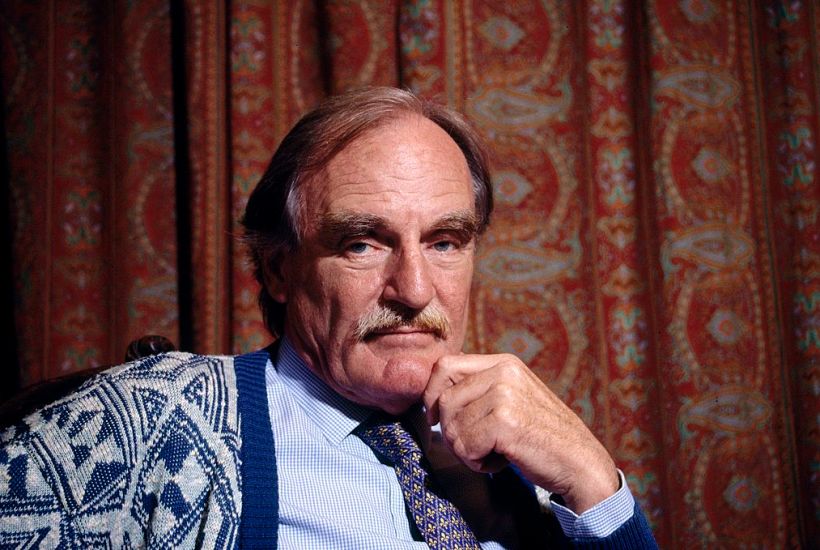
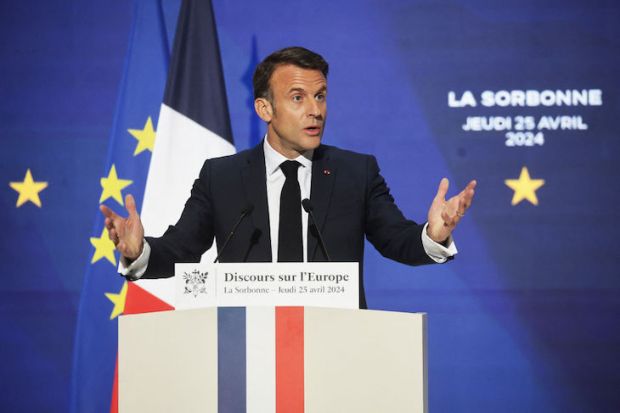

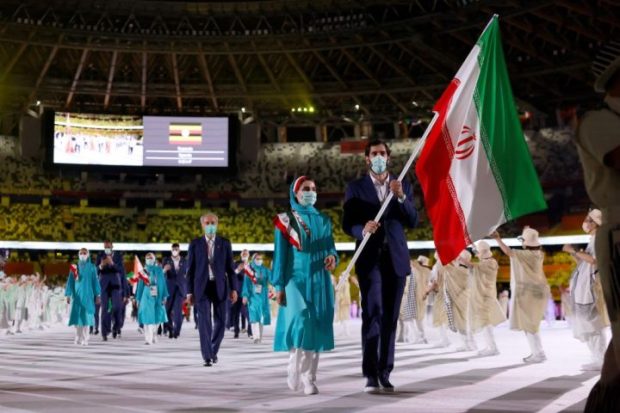
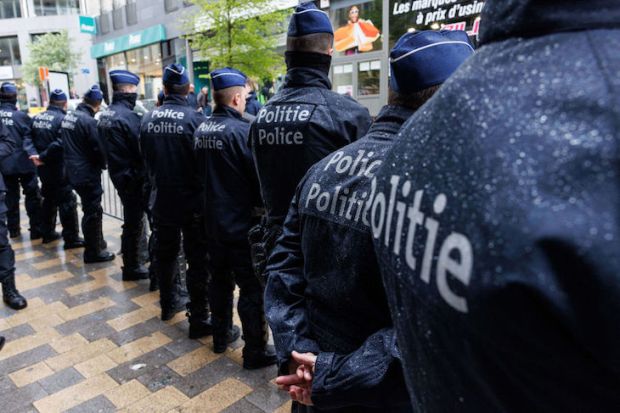
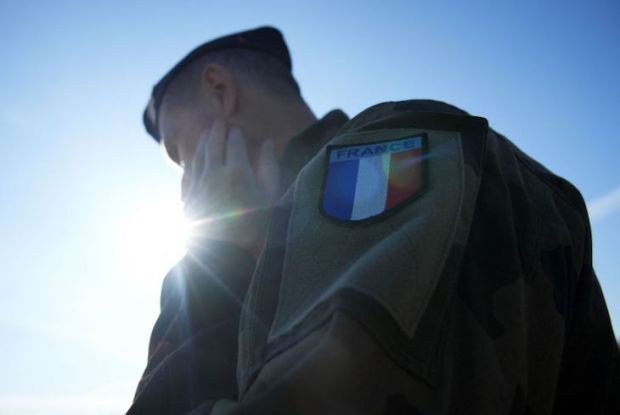













Comments
Don't miss out
Join the conversation with other Spectator Australia readers. Subscribe to leave a comment.
SUBSCRIBEAlready a subscriber? Log in